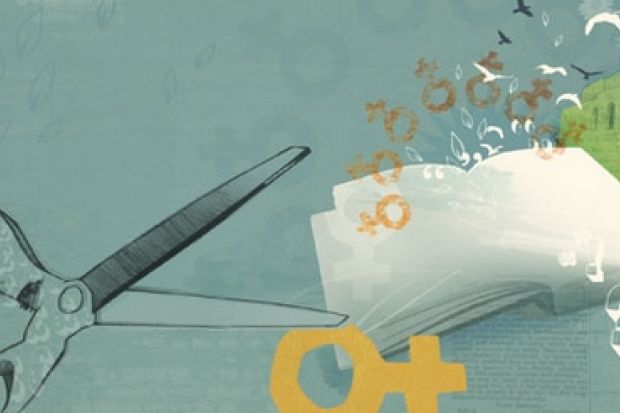Just over a decade ago, in early 2002, I attended the opening of the Women's Library in Old Castle Street, East London, in a fine new building constructed on the site of some former wash houses. It was a wonderful event. Antonia Byatt, the library's first director, gave an upbeat address, as did Tessa Jowell, who was culture minister at the time. Women and men from all sides of the political spectrum were there. The great and the good gladly rubbed shoulders with us lesser mortals, wine glasses in our hands. We all felt that at long last, this unique collection about women's lives in the past and present had a proper home. That it all came about was due to a £4.2 million grant from the Heritage Lottery Fund, the support of London Guildhall University, and (especially) the enormous efforts of a large number of people, including the Friends of the Library.
What a difference a decade makes. On 14 March this year, the board of governors at London Metropolitan University (formed in 2002 by the merger of London Guildhall and the University of North London) announced that the institution could no longer afford to maintain the Women's Library, nor the Trades Union Congress Library, at a joint cost of approximately £1 million a year.
It was proposed that if by the end of December 2012 a new home, owner or sponsor of the Women's Library could not be found, then opening hours would be limited to one day a week for a period of three years, with a further review after that. It was also decided that further investigation would be undertaken into the feasibility of constructing a lecture theatre within the library building to meet the demand on that campus for a medium-sized lecture space.
To its credit, London Met has financially supported the Women's Library for a number of years, but to cast it to the winds is an act of cultural vandalism. The library, with more than 60,000 books and pamphlets, a massive archive of personal letters, ephemera, oral recordings and more than 11,000 objects - including banners from the women's suffrage campaign - is the most extensive collection on women's history in Europe. It documents, in myriad ways, women's struggle for equality in the past and present.
About 30,000 visitors come to the library each year. Many are scholars writing publicly funded publications, but others are curious members of the public. The item that most ask to see is the return train ticket bought by Emily Wilding Davison, the suffragette who died in June 1913, four days after being injured at the Derby when she ran on to the racecourse and tried to grab the reins of George V's horse, Anmer. A deeply committed Christian who was willing to take risks with her life, that small ticket stub (the return fare was eight shillings and sixpence) poses a poignant question: was her death an accident or did she intend to commit suicide?
The collection on women's suffrage is regarded as being of such national and international importance that in 2011 it was awarded Memory of the World status by the United Nations Educational, Scientific and Cultural Organisation. What greater accolade could there be?
However, the library, first established in 1926, embraces a much wider range of sources than those relating to the campaign for women's enfranchisement. There are first editions here of Mary Wollstonecraft's 1792 book A Vindication of the Rights of Woman, regarded as the founding text of Western feminism. There are signed biographies of more contemporary figures, such as the former Labour minister Barbara Castle and Margaret Thatcher. The library also operates as an important cultural centre, holding talks, family activity events and exhibitions.
What is necessary now is for the cross-party support so evident in 2002 when the library opened to be rekindled. Sign the petition to save this irreplaceable archive. Lobby MPs. Discuss the issue in the media. Kick up a fuss.
The coalition government should sort out the mess whereby museums in our universities receive earmarked funding but libraries and archives do not. If state funding for the Women's Library on its present site is not forthcoming, then I fervently hope that one of the other London universities will take in the collection and make it available to all. To deny access to the Women's Library's rich resources is a betrayal of the cultural heritage of half the human race.
Register to continue
Why register?
- Registration is free and only takes a moment
- Once registered, you can read 3 articles a month
- Sign up for our newsletter
Subscribe
Or subscribe for unlimited access to:
- Unlimited access to news, views, insights & reviews
- Digital editions
- Digital access to THE’s university and college rankings analysis
Already registered or a current subscriber? Login
